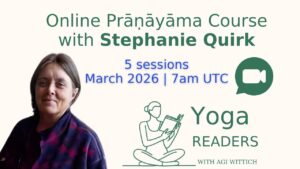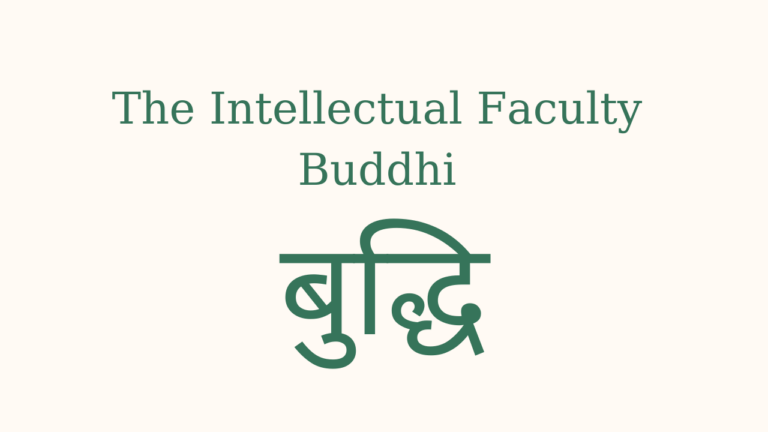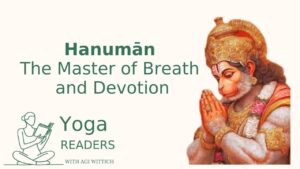
Prāṇāyāma with Stephanie Quirk – Online Mini Course
A special offering for Light on Prāṇāyāma readers We’re happy to offer this 5-session online prāṇāyāma course with senior Iyengar teacher Stephanie Quirk at

From Book Session: Unit 3 of Geeta Iyengar's Yoga a Gem for Women: Practice Foundations
According to Geeta S. Iyengar’s “Yoga – A Gem for Women,” buddhi (intelligence) serves as a cornerstone in the practice and understanding of yoga. Far beyond mere intellectual capacity, buddhi represents the higher discriminating faculty of the mind that bridges our ordinary consciousness with deeper spiritual wisdom.
In the performance of yoga, Geeta Iyengar emphasizes that intelligence plays the main role, stating that “a movement during asana practice is not mere twisting of the body. It has a bearing not only on the physical aspect, but on the physiological and the psychological as well.” This understanding reveals how buddhi operates on multiple levels of our being, integrating physical movement with deeper awareness and understanding.
The concept of buddhi finds its theoretical foundation in Samkhya philosophy, where it’s considered the first and most subtle evolute of Prakriti (primordial nature). At the universal level, it’s known as mahat or the cosmic intellect, while at the individual level, it helps us understand our relationship with pure consciousness (Purusha). This philosophical framework provides the context for understanding buddhi’s role in yoga practice.
Geeta Iyengar points out an important distinction between theoretical and practical understanding. She notes that “often a sadhaka will grasp the asana and the method of its performance by her intelligence, but finds it hard to translate the same into practice. Mere academic knowledge of the asanas remains illusory.” This observation highlights the necessity of integrating theoretical knowledge with practical experience. As she explains, “When theoretical knowledge and experienced knowledge meet, harmony, clarity, and wisdom set in. This is called Prajna.”
In practical application, buddhi manifests as our capacity for self-observation and correction. As Geeta Iyengar instructs, “The brain should be cool, alert, and watchful, examining the movements of the body and the fluctuations of the mind during every moment of practice.” This vigilant awareness allows practitioners to identify and correct mistakes quickly, with “the body as the performer and the brain as the observer.”
The cultivation of buddhi requires dedicated practice and attention. Through sustained yoga practice, we develop not just physical flexibility but also mental clarity and discrimination. This process involves maintaining awareness during asana practice, engaging in self-reflection, and developing discernment in our approach to both yoga and daily life.
Traditional yogic wisdom suggests that buddhi can be refined through regular meditation, contemplation, and ethical living. However, Geeta Iyengar’s practical approach demonstrates how this refinement can occur through attentive asana practice as well. The physical practice becomes a laboratory for developing higher intelligence and awareness.
The benefits of developing buddhi extend far beyond the yoga mat. As this faculty becomes more refined, practitioners experience greater clarity in decision-making, enhanced intuitive understanding, and better emotional regulation. The ability to observe and discern becomes more acute, leading to improvements in both yoga practice and daily life.
In today’s fast-paced world, the development of buddhi through yoga practice offers a path to greater wisdom and clarity. It helps us navigate challenges with greater awareness and make decisions that benefit our long-term well-being. This higher intelligence assists in maintaining spiritual connection while engaging in worldly duties.
The journey of developing buddhi is gradual and requires patience, dedication, and consistent practice. As Geeta Iyengar’s teachings show, this development occurs through the careful integration of physical practice with mental awareness and discrimination. Through this process, we become better equipped to understand both the subtleties of yoga practice and the deeper truths of our own nature.
Understanding and nurturing buddhi thus becomes essential for anyone seeking deeper growth through yoga practice. It represents our highest faculty of discrimination and understanding, helping us navigate both our spiritual journey and daily life with greater awareness and clarity. Through conscious cultivation of this aspect of our being, we move toward greater wisdom, peace, and evolution in our practice and our lives.

A special offering for Light on Prāṇāyāma readers We’re happy to offer this 5-session online prāṇāyāma course with senior Iyengar teacher Stephanie Quirk at

At the opening of Light on Prāṇāyāma, B.K.S. Iyengar invokes Hanumān [हनुमान्]. The reference is brief, almost passing, yet it is not incidental. Iyengar
At the beginning of Light on Prāṇāyāma, B.K.S. Iyengar mentions, almost in passing, the concept of Hiraṇyagarbha. He does not stop to explain it,
Agi Wittich is a yoga practitioner since two decades, and is a certified Iyengar Yoga teacher. Wittich studied Sanskrit and Tamil at the Hebrew University of Jerusalem, Israel, completing a PhD with a focus on Hinduism, Yoga, and Gender. She has published academic papers exploring topics such as Iyengar yoga and women, the effects of Western media on the image of yoga, and an analysis of the Thirumanthiram yoga text.